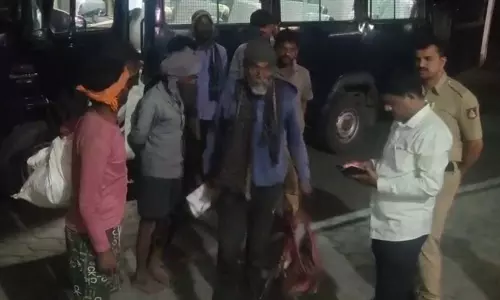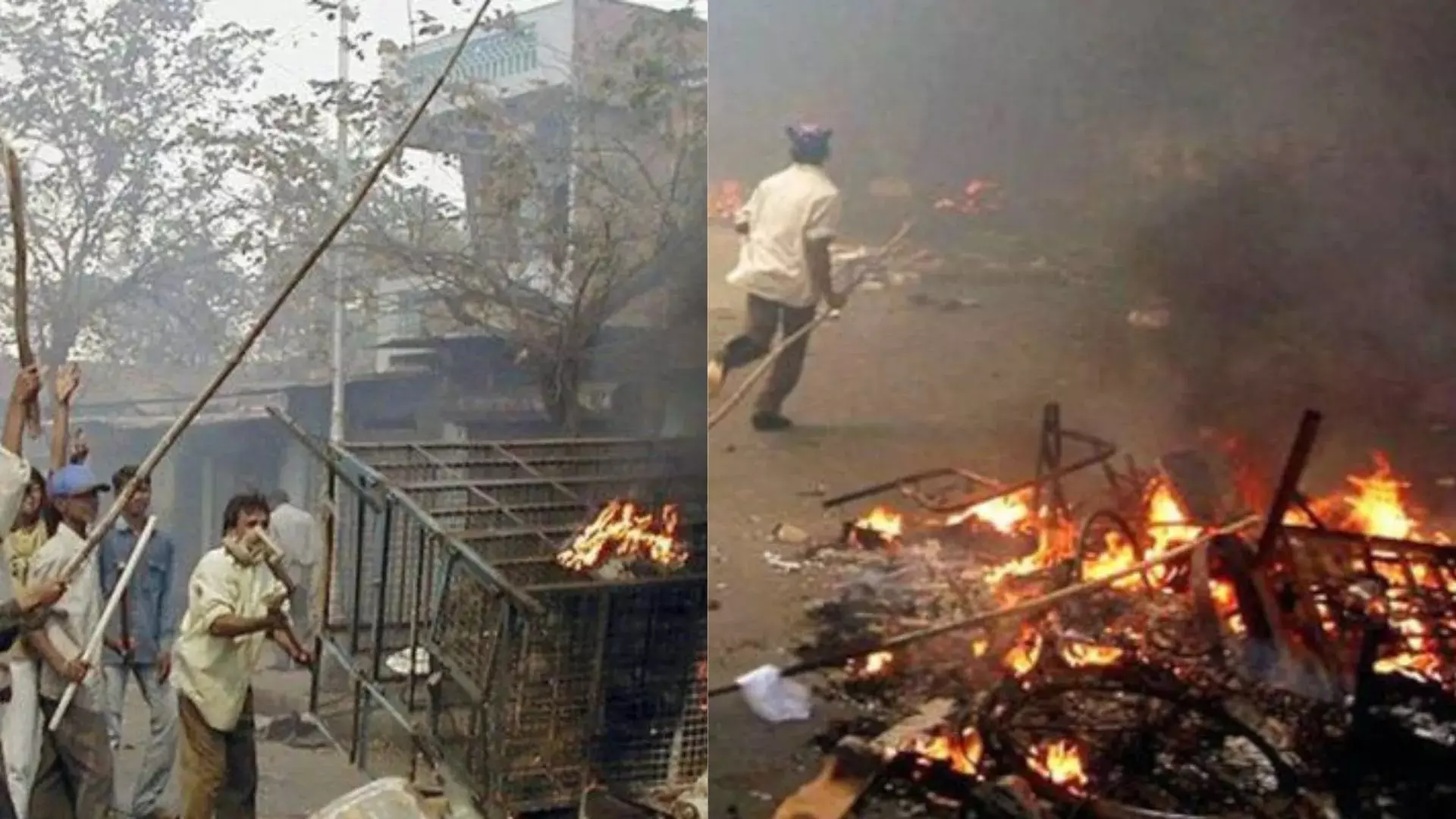
In Narodagam, was it the case that nothing happened?
text_fieldsA special court has acquitted all the accused in the Narodagam massacre that occurred during the Gujarat Genocide, wherein 11 individuals were burned to death by a Hindutva mob. This was one of the series of killings that took place after the Godhra incident 21 years ago when Narendra Modi was the Gujarat Chief Minister and Amit Shah was the Home Minister. On February 27, 59 people, including Karsevakars returning from Ayodhya, were killed when the Sabarmati Express was set on fire. The next day, the Hindutva launched a massive attack targeting Muslims in Narodapatya and Narodagam, resulting in the deaths of 97 and 11 individuals, respectively. The special trial court had initially sentenced the accused in the Narodapatya case, but the High Court overturned it in 2018. Similarly, in the Narodagam incident, the trial court acquitted all 67 surviving accused, stating a lack of evidence against them. Despite evidence from various investigative and fact-finding teams and the submission of forensic evidence and a hidden camera report by journalist Ashish Khetan, BJP leaders, including Maya Kotnani, who was also a state minister at the time, escaped punishment. Co-accused Jaideep Patel of VHP and Babu Bajrangi, the fiery leader of Bajrang Dal, are also expected to be acquitted.
The verdict acquitting all accused in the Narodagam massacre during the Gujarat Genocide was not unexpected as all courts in cases related to the genocide have produced similar outcomes. Despite BJP's long-standing rule in Gujarat and the efforts of investigating agencies, evidence has failed to be produced in court. Even in cases where the accused were sentenced, the government has found ways to save them, as seen in the Bilkis Banu case where the Gujarat government commuted the punishment of the convicts. The Sangh Parivar's celebration and invitation of the convicted criminals to party events suggests that these are not merely court proceedings but ethnopolitical experiments of Hindutva with implications beyond legal proceedings. While a few were convicted in the Best Bakery and Ode village massacres, many were saved on technical grounds. In Narodagam, however, the court was convinced that none of the accused was guilty. The Supreme Court ordered a special investigation team to be formed in 2008 for this case. Chargesheets were filed against 86 people within a year, but after a 12-year-long trial, if the court declares none of them guilty, what does it signify? The fact that Amit Shah himself testified in court for Maya Kotnani, in this case, makes it clear where Narodagam is headed.
Therefore, the Gujarat Genocide cannot be viewed solely as a communal atrocity, which claimed more than 2,000 lives, displaced tens of thousands, and led to hundreds of women being raped. It must be recognized as a critical moment in history where the very existence of the Muslim minority in India is in question. What took place in the political laboratory of Hindutva 21 years ago has now spread throughout the country, with mob violence like that seen in Narodapatya and Gulberg Society continuing to occur with impunity. It is regrettable and dangerous that our judiciary seems to share the same mentality as these mobs in some instances, as demonstrated by the Narodagam court verdict. However, those who believe in democracy cannot lose hope and must continue to engage in the struggle for dialogue and democratic means.























